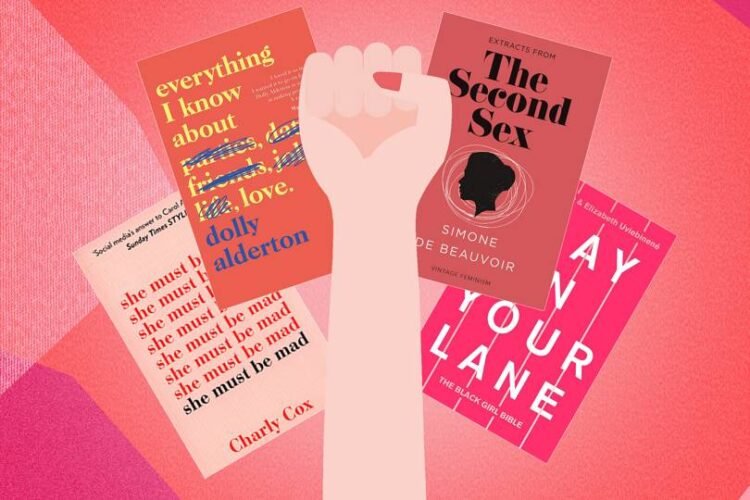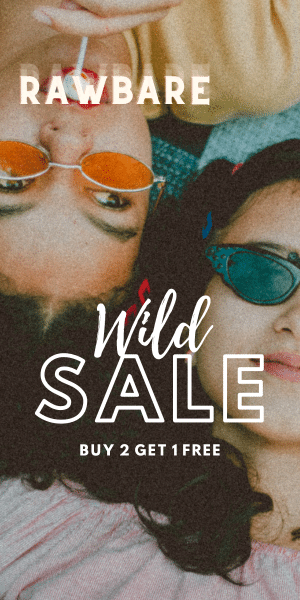Scarcely a week goes by without some social media ninja painting feminists as a man-hating, world-hating, angry group of women, eager to shred every opinion that contradicts theirs, to bits. Feminism as a concept has evolved and changed immensely and still continues.
Feminism as a concept as well as an ideology continues to be misinterpreted and stereotyped. One of the most authentic ways to know its true explication is to read about feminism, but many of us find it a herculean task to read or do not have enough time and resources to pick up a book. In the latter case, TSA brings to you a range of books which could help you to deepen your understanding of the subject, which is indispensable yet controversial.
What’s more, it is also the easiest way to contribute to this crucial and extensive revolution. Grab a book and settle down to read and know why feminism is essential. This is not an exhaustive reading list, but it is definitely something to start with, to navigate your way towards taking a step forward in constructing a positive discourse to understand feminism and feminists.
Table of Contents
A Brief History of Feminism by Antje Schrupp

Schrupp and Patu published this graphic novel in the year 2017 that mainly traces the development of feminism from antiquity through the third wave of the feminist movement. While this book is primarily limited to offering an account of the evolution of European, Western feminist movements, this is nonetheless a fun, accessible, and educational read that will give readers a thirst to learn more.
The Bell Jar by Sylvia Plath

The semi-autobiographical story of a woman’s descent into mental illness in the 1950s, The Bell Jar has become a quintessential coming-of-age story for young feminists. Quite moody and many a time terse, the prose beautifully encapsulates a moment in the popular female experience—the desire, disillusionment, and followed fear, of being young, confused, and stifled by the role that society has prescribed to women.
Seeing like a Feminist by Nivedita Menon

The book studies sexual division of labor, increasing incidents of sexism and violence in the workplace, in courts, in politics. The book explains our anxieties behind prostitution, abortion, commercial surrogacy, etc. while trying to convince us to look beyond them. What was most central to the book was a realization that accepted prejudiced practices of society classify something or someone without objective understanding, in order to trap us into its narrative.
This Bridge Called My Back

This anthology series primarily features personal essays, criticisms, poetry, and even visual art created by over a dozen feminist ‘women of color’. It explores the ways their identities intersect —gender, race, sexuality, class—shape the ways in which they relate to the world and the way the world, in turn, relates to them. Though it was originally published in the ‘80s, the issue it presents, and the perspectives they stand for, remain as pertinent to today’s feminist landscape as they were over thirty years ago. And in the present scenario, this book is a must-read.
Women & Power by Mary Beard

Famous classicist Mary Beard traces the status of women in history, from ‘mansplaining’ to Medusa, and also discusses the gender agendas we witness today by uncovering the relationship between women and power. With some personal anecdotes and a whole bunch of cultural awareness, she unpacks the true meaning and implications behind ‘power’ as we perceive it today.
The Golden Notebook by Doris Lessing

Winner of the Nobel Prize for Literature, this 1962 experimental novel speaks of what was, at that time unspeakable and is thus considered a leap forward in feminist literature. Women written, as creatures with sexual desires, with mental illness, who struggle, and climax, and, yes, menstruate. Through the lens of Anna, a writer attempting to consolidate notebooks of her life experience and creative work into a cohesive whole, Lessing explores the side of feminine life with love, anger, and a rawness considered ‘un-pretty’ that was nigh-unheard of for a female author of her era.
Invisible Women: Exposing Data Bias in a World Designed for Men by Caroline Criado Perez

Perez analyses how gender politics are affected and enhanced by gaps in big data and argues powerfully that human history is comprised of a pervasive gender data gap that effectively ‘silences’ and erases women’s accomplishments, experiences, needs, and daily lives.
I Call Myself A Feminist

This book is a reminder of why feminism matters and the questions feminists are struggling with, in varying degrees. It reminds you of all that’s been done and so much that is left to do. I Call Myself A Feminist is a collection of essays by 25 women under 30, who make you see feminism through the eyes of women of color, Muslim women, Trans women, queer women… you get the drift. If you’ve ever wondered what intersectional feminism means, or why something that seems like a non-issue to you is the most important thing to someone, you need to read this book.
The Second Sex By Simone De Beauvoir, 1949

This book fundamentally combines existential philosophy with a staggeringly broad analysis of the condition of women in the present times, it takes into account everything from fashion to sex, to mysticism. De Beauvoir lampoons the persistent myths that keep women largely in a passive position, such as the fairy-tale of romantic love, which promises to them, salvation by a man. She warns of “the harsh punishment inflicted upon the woman who has not taken her destiny into her own hands.”
Feminism is for Everybody by Bell Hooks

Suffice it to say that feminist theory can be a bit dense for some. That’s why feminist author and cultural critic bell hooks set out in 2000 to create an educational text for those whose understanding of feminism comes from passing TV references and outdated ideas about ‘feminazis’. It is a very passionate treatise for the lay-feminist. Hooks explains and also examines, inclusive feminism and the practical application and significance of it in a way that is entertaining as well as informative.
How To Be A Woman by Caitlin Moran

If I could, I’d make How To Be A Woman mandatory reading for men and women under the age of 30. The women, because it is a sharp, witty, howl-with-laughter hilarious, completely non-preachy manifesto on how to be a feminist while still being you. The men, purely so they can understand the freight train of thoughts barrelling through a woman’s head as her beliefs battle with her conditioning, and they both battle her relationship with herself and the men around her. From the biggies like work, marriage, and kids to smaller everyday battles like yoga pants, bras, pornography, and hair removal, everything is up for discussion and dissection, but with biting humor.
Men Explain Things to Me by Rebecca Solnit

This book is best known for popularizing the term “mansplaining.” Solnit’s collection of these personal yet decidedly ‘un-saccharine’ essays delves into the big themes of the modern feminist experience with a lot more clarity and humor. From having your own interests covered and explained to you and the #YesAllWomen movement to marriage equality, her pieces are relatable and often had a rage-inducing look into gender in the 2010s.
We Should All Be Feminists by Chimamanda Ngozi Adichie

Here, the award-winning author of Half of a Yellow Sun and Americanah offers readers a unique definition of feminism for the twenty-first century, one rooted in inclusion and awareness. By drawing extensively from her own experiences and her deep understanding of the often-masked realities of sexual politics, this is one remarkable author’s exploration of what it means to be a woman now in this time —and a rallying cry for why we should all necessarily be feminists. Published in 2014, this highly acclaimed, provocative New York Times bestseller is adapted from the much-admired 2012 TEDx talk of the same name.
We Were Feminists Once by Andi Zeisler

According to Zeisler, capitalism and neo-liberalism have watered down the concept of feminism, detaching it from political aspirations such as equal pay and health care. Zeisler refers to advertising and product development such as Virginia Slims cigarettes and Spanx to illustrate how society uses feminism as a marketing campaign. She mentions celebrities who are self-proclaimed feminists and discusses the false empowerment of women which she says is but a superficial endorsement of the feminist movement. Throughout the book, Zeisler clarifies that market feminism is not in line with the politics of feminism.
The High Caste Hindu Woman by Pandita Ramabai

The book covers every stage of a high caste woman’s life, beginning with childhood, stating a woman’s place in religion and society so that Ramabai’s comments can be given a clearer context and ending with an appeal for the betterment of women’s lives through the creation of institutions where high caste widows could be educated and cared for, and taught to be independent – this she points out in an earlier chapter of her book as against Manu’s laws, since women ‘are never fit for independence’.
Pinjar by Amrita Pritam

Pinjar(a), meaning cage in Hindi, is the story of a woman from Punjab during the partition of India and Pakistan. In Punjabi, Pinjar means a skeleton. Tumultuous times, tough situations, excruciating heartbreaks, demanding society norms, and yet Puro, the woman protagonist of the story, does the best she could.
Also, read JCB Prize For Literature Nominees 2020 Out Now: Indian Women Wow The West.
So this was a list of books that speak feminism in various ways, be it obliquely, directly, or symbolically. All necessary contexts when we consider the levels of expectation attached to the term. These titles, by women, take on different ideas and explore the expectation of who women are to others. Yet they also interrogate expectation of the idea of “womanhood” in the realm of patriarchal structures, be it in our individual mindset and from society as a whole. How are women’s values upheld, if at all? And where do marginalized identities fit into these notions of feminism? Over time, one might realize that to be feminist is not a singular concept, and these titles expand on that.










